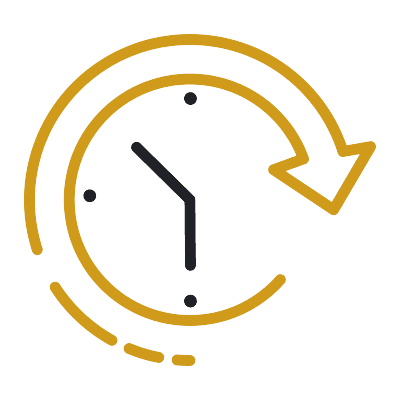Join our online women’s health course and explore the state of women’s healthcare today.
Learn to analyse, monitor, and improve healthcare for women around the world.
In this Masters-level online short course, you’ll learn from expert health researchers and clinical academics.
You’ll investigate the factors affecting women’s health in low- and middle-income countries, including:
- gender bias, women’s rights, equality and diversity
- LGBTQ health and transgender issues around the globe
- poverty, education, and the challenges for global women’s health
- maternal and reproductive health (before, during and after pregnancy)
- community, culture, and women’s mental health
- women’s health in later life
- governance and innovation in healthcare, including women’s digital health breakthroughs.
You’ll explore the differences in women’s health outcomes between developed and developing countries.
And you’ll find out how we can work to deliver quality women-centred healthcare for every woman, everywhere.
Who is this online women’s health course for?
You do not need to have a background in health or medicine to join us for this distance-learning course. It’s open to anyone with an interest in women’s health.
This online course is of particular interest to GPs, nurses, midwives and allied health professionals, or if you work in epidemiology, family planning, community healthcare, or the third sector.
You can study online with us anywhere, with no need for a study visa.

Build credits towards a Masters degree
This online course is part of:
You can use the credits you earn on this short course towards any of these postgraduate qualifications.
What you’ll study
You’ll study the many issues that affect women’s health globally. You’ll cover low-, middle- and high-income countries, but primarily focus on developing countries.
You’ll review and discuss the latest information, WHO recommendations and policies informing actions to improve women’s health outcomes, including:
- the UN’s 2030 Sustainable Development Goals
- the WHO’s Global Strategy for Women’s, Children’s, and Adolescents’ Health.
You’ll also look into the effects Covid-19 is having on women’s health in countries around the world.
Topics you’ll cover
You’ll cover the following areas across six course units:
Women’s rights, equality and diversity
- Women’s human rights, including reproductive rights.
- Gender differences and inequality in science, medicine and global health.
- How the Covid-19 crisis is exacerbating gender inequality.
- LGBTQ health issues and healthcare.
- Transgender health, exploring issues in Africa, Thailand and around the world.
Challenges for global women’s health
- Gender-based violence, including intimate partner violence, and reducing risk for women in war and refugee settings.
- Female genital mutilation (FGM), types of FGM, and long-term health consequences.
- Poverty, child marriage, and sex trafficking.
- Education, and how we can finance growth in secondary schooling for girls in developing countries.
- Socio-economic challenges, women in the workplace, cultural beliefs and traditional practices.
- Nutrition, including women’s diet and the health of her children.
Maternal and reproductive health
- Pre-pregnancy, fertility, adolescent girl’s health.
- Global differences in fertility care and experiences of menstruation.
- Maternal health in pregnancy, and how to tackle maternal and child mortality.
- Post-natal health, including post-natal depression.
Community and women’s mental health
- Sexually transmitted diseases.
- Family planning, access to contraception, and unsafe abortion.
- Mental health, common mental health issues, treatment, and cultural influences.
- Alcohol and recreational drug use.
Women’s health in later life
- Ageing, old-age disability, and the effects of Covid-19 on older populations.
- Global perspectives on menopause and post-reproductive health.
- Burden of disease, with comparisons between high-, middle- and low-income countries.
Governance and innovation in women’s health care
- Malignant conditions in women, including breast, cervical, and ovarian cancer.
- Quality improvement in women’s health care, and setting priorities.
- Role of modern technology in women’s health, exploring emerging trends in digital health, including fertility-tracking apps.
By the end of this course, you’ll be able to…
-
Recognise the impact of gender differences and inequality on women’s health around the world.
-
Describe different health problems affecting women during various stages of life.
-
Illustrate women’s barriers for seeking health care support within different socio-cultural environments.
-
Investigate issues relating to women’s health later in life.
-
Evaluate the actions needed to improve women’s health outcomes worldwide.

This course has strengthened my passion for women’s, maternal, and child health by educating me on the existing gaps. It’s positioned me for change in my workplace, my immediate community, and in society more broadly.
Kigbu Oghenegare Asheaba MD, Abjua, Nigeria
How you’ll study
Online learning
Our distance-learning online women’s health course is delivered flexibly, 100% online. You can study with us anywhere in the world and manage your study hours to suit you.
Your teaching
This course is taught at postgraduate level.
Your teaching is delivered through MyAberdeen, our online Virtual Learning Environment (VLE). It holds all the materials, tools and support you’ll need in your studies. Take a look around MyAberdeen.
You can access your learning materials on computer, smartphone and laptop, 24 hours a day. You’ll find a range of resources at your fingertips, including:
- videos and slideshows
- online tutorials
- quizzes
- video interviews
- reading materials
- discussion boards with colleagues and tutors
- the online resources of our award-winning Sir Duncan Rice Library.
Online tutorials
You’ll have a one-hour tutorial session with your course coordinator every two weeks. Here you’ll revise what you’ve covered in the previous week’s study. Your tutorials give you a place to ask your tutor questions, and chat about any issues you might be having. They’ll be recorded if you cannot join them live, so you can study when it suits you.
Your tutors
You’ll learn from internationally experienced women’s health researchers and clinical academics from our Institute of Applied Health Sciences (IAHS). NHS consultants, nurses and midwives from around the world also contribute to your course.
This course is assessed entirely online via:
- two short video presentations
- a written report relating to a case study
- a single best answer (SBA) assessment
- multiple-choice quizzes.
The course totals approximately 150 hours of study and assessment time. That’s around 10 – 15 hours per week.
This is an indicative guide to the time required for a typical student at this level to achieve the learning outcomes.
You can largely set your own study hours each week to cover the materials. MyAberdeen is available 24/7, so you can log in and study when it suits you.
Activities at fixed times
There will be some activities scheduled for fixed times, including:
- assessments with deadlines
- and a one-hour tutorial every two weeks.
Otherwise, you can access and work through the course at your convenience.
Hours for online tutorials
You’ll have a one-hour online tutorial every two weeks. At the start of the course, your coordinator will set the most suitable time for these, taking into account everyone’s location and time zone. Your tutorials will be recorded for you to watch later if you are unable to attend live.
Our first-class support structure will ensure that you aren’t alone in your studies. You’ll have contact with your tutors via MyAberdeen and email. You can use social media and discussion boards to chat with your fellow students too.
We provide a wide range of services to support you in your studies and beyond:
- Careers and Employability Service
- Disability support
- IT support
- Library support
- Student Support Service – help with finances, wellbeing and non-academic issues
- Student Learning Service – study support, with advice sessions available
- Aberdeen University Students’ Association (AUSA) – run by students for students
- Toolkit – clever apps and free training that can make your study life easier
Wherever you are in the world, you’ll feel part of our very special Aberdeen learning community.
Your course coordinator

Dr Alyaa Mostafa
Alyaa is a Clinical Lecturer and Research Fellow in our Institute of Applied Health Sciences. With a background in obstetrics and gynaecology, Alyaa is a member of the Aberdeen Centre for Women’s Health Research and focuses on improving women’s health.
View Alyaa’s profileWhere this will take you
Towards a Masters
You’ll earn 15 credits at Masters level (SCQF Level 11) with this course. You can use these credits towards our:

Masters in Applied Health Sciences
Fast-track your career in healthcare with our uniquely flexible MSc Applied Health Sciences. Study 100% online or combine with on-campus courses at our Foresterhill Health Campus. 10% discount for NHS staff.
View MSc Applied Health Sciences
Masters in Clinical Nutrition
Join an online Nutrition degree accredited by the Association for Nutrition. Study the link between diet and health, and how issues of over and undernutrition affect populations today. 10% discount for NHS staff.
View MSc Clinical Nutrition
Master of Public Health (MPH)
Join an online Master of Public Health (MPH) you can tailor to your career. Study with experts and choose from a wide range of courses to focus your training. 10% discount for NHS staff.
View Master of Public Health (MPH)Build your learning with more short courses
We have a range of online healthcare and medicine short courses you can use to earn in-demand skills.
Many carry credits you can build up into postgraduate qualifications, including Masters degrees:
Careers
If you’re keen to move into the women’s or global health field, this course is a step towards a career in these areas.
The course will broaden and deepen your knowledge and skills as a physician, nurse, midwife, allied health professional, or if you work in community healthcare, family planning, women’s groups or the third sector.
You’ll also meet like-minded people on the course and build your professional network.
Continuing professional development (CPD)
Your employer or professional institute may recognise this course for CPD hours. Talk to your employer or institute to find out more.

Free career support
Access our free careers service while you study.
- 1:1 appointments
- CV checks
- Interview prep
- Job opportunities
Why study women’s health online with the University of Aberdeen?

Fits around full-time work
This online course fits around work, with flexible hours and 24/7 study access.

2nd in Scotland for Medicine
Join a university ranked 2nd in Scotland and 6th in the UK for Medicine (Guardian University Guide 2026).

NHS and alumni discounts
NHS staff get 10% off this online course. University of Aberdeen alumni get 20% off.
Entry requirements
Entry requirements
We welcome students from all over the world.
This course has no formal entry requirements. You do not need to provide proof of your qualifications.
But you do need to check the entry guidance above to understand the level of teaching delivered, to decide if this course is right for you.
If you do not have qualifications from the UK, check the equivalent teaching level for your country.
Visa requirements
You do not need a student visa to study online with us.
English language requirements
Teaching is delivered in English.
You do not have to provide proof of your English language skills to join this course. But we want to make sure that you can use English well enough to study successfully.
Recommended level of English
This course uses our Postgraduate Higher level of English language proficiency.
These are our Postgraduate Higher requirements, and these are minimum scores.
IELTS Academic, IELTS UKVI Academic, or IELTS Online (not IELTS Indicator or IELTS General Training)
- 6.5 overall
- 5.5 for listening and speaking
- 6.0 for reading and writing
TOEFL iBT or TOEFL iBT Home Edition
- 90 overall
- 17 for listening
- 21 for reading
- 20 for speaking
- 21 for writing
- TOEFL DI code is 0818
Cambridge English: B2 First, C1 Advanced, or C2 Proficiency
- 176 overall
- 162 for listening and speaking
- 169 for reading and writing
LanguageCert Academic / LanguageCert Academic SELT
- 70 overall
- 60 for listening and speaking
- 65 for reading and writing
Oxford ELLT Digital – English Language Level Test Online
- 7.0 overall
- 5.0 for listening and speaking
- 6.0 for reading and writing
PTE Academic (online test not accepted)
- 62 overall
- 59 for listening, reading, speaking and writing
Skills for English: SELT
- B2 pass with merit
Duolingo – tests taken from 1 July 2024 onward
- 120 overall
- 95 for listening and speaking
- 105 for reading and writing
University of Aberdeen English Pre-sessional Programme (PSE)
- Pass
- Valid for one year. Refresher can be offered if out of date
Pre-sessional academic English preparation programmes undertaken at other UK universities
- Pass at an equivalent of 6.5 (C1)
- B2 in all four skills
- Certification must be within one year prior to the start of your course
For more information about language qualifications see our English Language Requirements page.
You will need access to:
A computer (PC, laptop or Mac) with an up-to-date operating system
Most teaching materials are smartphone- and tablet-friendly. But we recommend a proper laptop or desktop for completing assignments comfortably.
Reliable internet access
We recommend:
- a wired connection
- a minimum download speed of 2 Mbps so you can take part fully in live sessions.
Speakers or headphones
- We recommend a headset with built-in microphone and earphones if you’re likely to study in an environment with background noise.
- A webcam is optional, but you may like to use one for some interactive sessions.
Software
We’ll give you access to Office365 applications. This means you can use online versions of Microsoft Word, Excel, PowerPoint and OneDrive and install these programs on up to five personal devices.
If your course requires specialist software, we’ll provide you with access to this and a licence that lasts throughout your studies.
See our detailed IT requirements for more information.
When you study with us, you can expect a first-class support structure so that you’re never alone in your studies.
But learning online does mean you have to motivate yourself and manage your own time.
Your most important commitment will be time – the time to work through, reflect on and understand your teaching materials.
Before you start a course that involves a high degree of independent study, we recommend looking at the time you will be able to devote to your studies each week:
- Be realistic
- Create a weekly schedule as a guide
If you have any questions about studying online, get in touch with our friendly team. We’re here to help.
Fee payment
Your course fee needs to be paid in full before you start your course.
We accept payment via Visa Debit, Visa Credit and Mastercard.
Ways to save
You may be able to get help funding this course via:
- discounts – if any discounts are available for this course, they’ll appear in the section below
- employer sponsorship – we accept full and partial fee payments from sponsors.
Find out more about funding options.
Student card
All our students are entitled to a University of Aberdeen student card. This gives you access to a range of student discounts around the city and online.
This course has no formal entry requirements. You decide if it’s suitable for you.
The course is delivered at Masters level. At this level, you’d usually have at least:
- a 2:2 UK undergraduate degree (or equivalent), or
- relevant experience that supports this level of study.














